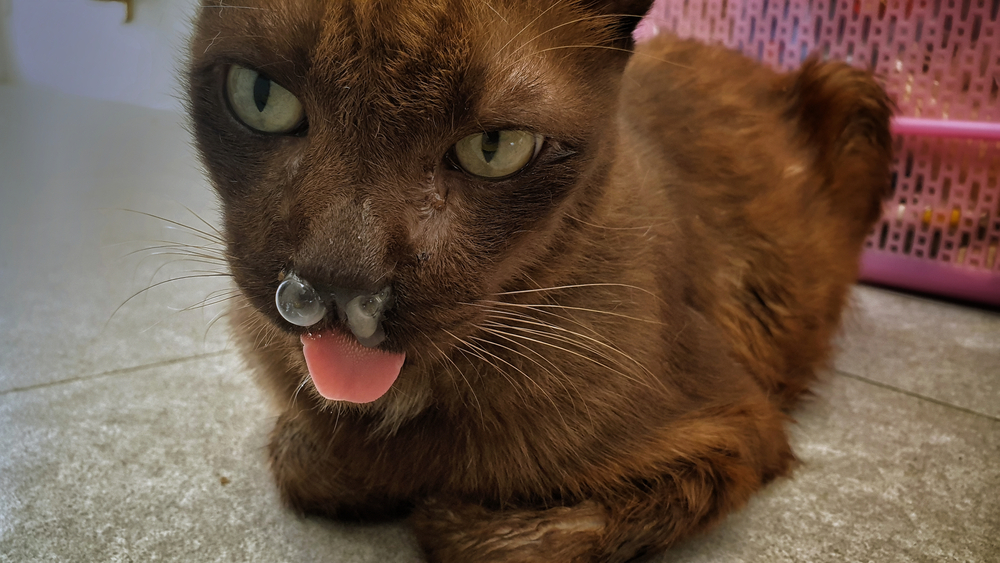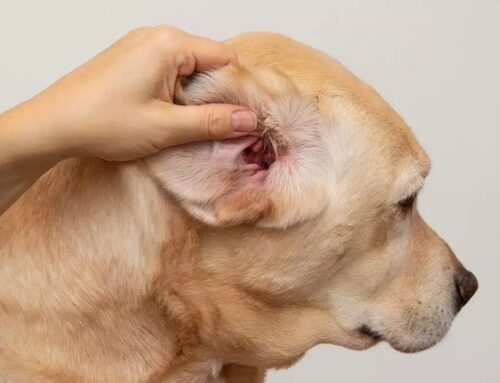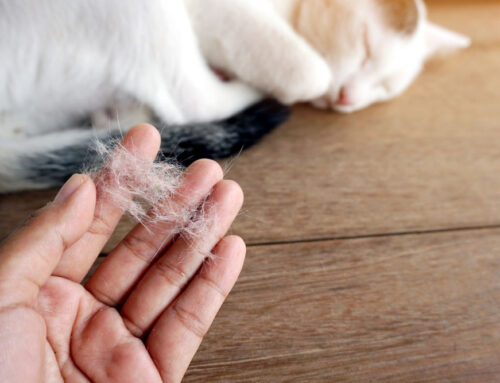Is your cat sniffling, sneezing, and generally miserable? They may be suffering from an upper respiratory infection. Commonly caused by viruses and bacteria, these infections are highly contagious and can emerge in seemingly healthy cats who are stressed.
To help you understand the possible cause of your cat’s illness and ensure they receive effective relief, the WesVet Animal Hospital team has prepared this guide to common upper respiratory infections in cats.
Upper respiratory infections in cats: How is infection transmitted?
Upper respiratory infections in cats are most commonly caused by viruses, although bacterial and fungal causes also exist. Viral pathogens are highly prevalent, and most cats encounter one or more during their lifetime. Transmission occurs much like human respiratory viruses, with infection-causing microorganisms passed from cat to cat via respiratory secretions (e.g., sneezing, coughing, eye, and nasal discharge), which are readily spread where cats live in close quarters, such as shelters, rescues, catteries, veterinary hospitals, or boarding facilities. Kittens and young cats are most at risk, while adult cats are less affected.
Upper respiratory infection in cats: What are the signs?
The upper respiratory tract includes your cat’s nose, sinuses, mouth, and trachea (i.e., windpipe). Most early indicators involve these areas, so owners are familiar with the signs, which include:
- Sneezing
- Congestion
- Nasal drainage that is clear or discolored (e.g., green, yellow, or white)
- Eye drainage that is clear or discolored
- Conjunctivitis
- Coughing
- Lethargy
- Decreased appetite
Additional signs can vary, based on your cat’s underlying cause—feline calicivirus and feline herpesvirus, for example, cause painful ulcers in and around the mouth. Cats require prompt treatment, or their signs may worsen and complications may develop as the infection progresses to the lower respiratory tract and lungs. These cats may experience secondary pneumonia or, if they stop eating, hepatic lipidosis (i.e., fatty liver syndrome), and require hospitalization to ensure a full recovery.
Feline upper respiratory viruses: What are the common culprits?
If your cat is experiencing upper respiratory signs, your veterinarian may suspect one or more viruses in the feline respiratory disease complex, a collection of similar viruses that includes:
- Feline calicivirus — Calicivirus can be mild or severe and is often characterized by visible ulcers on the cat’s mouth or gums. Recovered cats may shed the virus for weeks to months after treatment.
- Feline herpesvirus (i.e., feline viral rhinotracheitis [FVR]) — In addition to respiratory signs, herpesvirus can cause eye irritation and damage. Infected cats become lifelong carriers and the virus can recur when the cat is stressed.
- Chlamydia felis — This virus commonly causes conjunctivitis and may include fever.
- Mycoplasma — This virus produces significant eye swelling and nasal inflammation (i.e., rhinitis).
Additional bacterial and fungal causes may include:
- Bordetella bronchiseptica — The same organism responsible for kennel cough in dogs causes similar respiratory illness in cats (e.g., coughing, nasal discharge, fever).
- Cryptococcus — This rare fungal infection, which is transmitted through infected bird droppings, causes significant nasal swelling, chronic nasal discharge, and wounds or polyps on or inside the nose.
Fortunately, the most common respiratory microorganisms can be treated with similar medications and therapies, so testing to determine the causative agent(s) is necessary only for cats who fail to recover.
Upper respiratory infections: What treatments will help cats breathe easy?
Upper respiratory infections are often self-limiting in otherwise healthy cats, but your cat needs veterinary attention if their signs are severe or persist more than 7 to 10 days, they show other signs (e.g., vomiting, diarrhea), or they lose their appetite.
Diagnosis is typically based on a cat’s clinical signs that your veterinarian identifies during a standard physical examination. If your veterinarian also identifies breathing effort or pattern abnormalities, they may also require X-rays to check for pneumonia.
Medications can help accelerate your cat’s recovery and prevent complications. Recommended treatments may include:
- Oral antibiotics — Antibiotics may be prescribed to prevent secondary bacterial infections.
- Topical eye medication — Eye drops decrease inflammation and discomfort while also addressing infection.
- Humidification — Increased humidity can open up congested airways, so you may be advised to keep your cat in a steamy bathroom for 20 to 30 minutes, several times a day. You can also gently wipe your cat’s face to remove loosened debris.
- Isolation — Infectious cats should be quarantined from other cats until directed by your veterinarian.
Severely affected cats may require more extensive care, including hospitalization.
Upper respiratory infections in cats: How can they be prevented?

Unfortunately, no 100%-effective method is available for preventing upper respiratory infections in cats. The best protection includes vaccinating kittens and adult cats with a combination vaccine, commonly referred to as an FCVRP, which includes calicivirus and feline herpesvirus. Vaccines cannot completely guard against infection, but they will help minimize clinical signs. Contact the WesVet Animal Hospital team if you’re unsure about your cat’s vaccine history, as your cat may need booster vaccines to ensure adequate protection.
Reducing exposure may also help lower your cat’s infection risk. Keep your cat indoors and avoid direct contact with unvaccinated cats. If you must board your cat, ask about their vaccine and disinfection protocols. Lastly, minimizing unnecessary stress—and monitoring your cat’s responses to unavoidable stress—may help reduce future flare ups for recovered cats.
Feline upper respiratory viruses can make your cat miserable but, fortunately, treatment is easy and effective. If your cat is showing respiratory signs or needs their vaccines updated, contact the caring WesVet Animal Hospital team or request an appointment online.







Leave A Comment